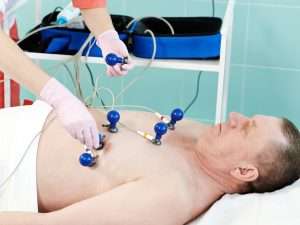Understanding POTS and Its Causes
Postural Orthostatic Tachycardia Syndrome (POTS) is a disorder of the autonomic nervous system that affects blood circulation and heart rate regulation. Individuals with POTS experience an abnormal increase in heart rate upon standing, leading to symptoms such as dizziness, fatigue, brain fog, and other debilitating effects. While the exact cause of POTS remains unclear, emerging research suggests that genetic factors may play a role in an individual’s susceptibility to developing the condition.
Is POTS Syndrome Genetic?
One of the key questions in POTS research is whether genetics contribute to its development. Although no single gene has been pinpointed as the definitive cause of POTS, studies indicate that certain genetic predispositions may increase the risk of developing the syndrome. For instance, POTS sometimes appears in multiple family members, prompting researchers to explore potential hereditary links. However, POTS does not follow a clear Mendelian inheritance pattern, making it challenging to attribute the condition to a single genetic factor.
POTS Genetic Factors and Family History
Genetics may not directly cause POTS but can influence an individual’s vulnerability to the condition. Some key genetic factors and associations include:
- Hereditary Tendencies: Families with a history of autonomic nervous system disorders may be more likely to develop POTS.
- Connective Tissue Disorders: Conditions such as Ehlers-Danlos Syndrome (EDS), which have a genetic basis, are commonly associated with POTS.
- Autoimmune Conditions: There is a notable overlap between POTS and autoimmune disorders, some of which have genetic components.
- Neurological and Cardiovascular Influences: Genetic predispositions may affect blood vessel function, heart rate regulation, and nervous system signaling, all of which can contribute to POTS.
The Role of Genetic Predisposition
While there is currently no definitive genetic test for POTS, individuals with a family history of the syndrome or related autonomic disorders may have an increased risk. It is important to note that a genetic predisposition does not guarantee the development of POTS. Instead, genetic factors may interact with environmental influences—such as infections, prolonged illness, or physical trauma, to trigger the onset of symptoms.
POTS Diagnosis and Treatment in Dallas
If you are experiencing symptoms of POTS and suspect a genetic link, seeking specialized care is essential. At The Heartbeat Clinic in Dallas, our team of expert POTS specialists uses advanced diagnostic tools to assess autonomic function and provide personalized treatment plans. Our comprehensive evaluation includes:
- Tilt Table Testing: To monitor heart rate and blood pressure changes upon standing.
- Autonomic Function Testing: To evaluate the extent of dysautonomia.
- Blood Volume and Circulation Assessments: To identify potential issues contributing to POTS symptoms.
How Can a POTS Specialist Help?
A POTS specialist in Dallas can guide you through a thorough evaluation and create a customized treatment plan that may include:
- Lifestyle Modifications:
- Dietary changes to enhance hydration and salt intake.
- Specific recommendations to avoid triggers, such as prolonged standing.
- Medication Management:
- Medications to regulate heart rate, blood pressure, and fluid balance.
- Physical Therapy and Exercise Programs:
- Structured, gradual exercise routines to improve cardiovascular function.
- Ongoing Support:
- Regular monitoring and adjustments to your treatment plan.
- Patient education on managing symptoms and associated conditions.
Conclusion
While POTS is not directly inherited, genetic predispositions and familial patterns of autonomic dysfunction may increase an individual’s risk of developing the condition. Ongoing research continues to explore the hereditary aspects of POTS, but early diagnosis and targeted management remain crucial for improving quality of life. If you or a family member in Dallas are experiencing symptoms of POTS, consulting a specialized POTS doctor can help you understand your condition and develop an effective treatment plan.
At The Heartbeat Clinic, our experienced team is dedicated to offering advanced POTS diagnosis and treatment in Dallas. Contact us today to schedule a consultation and explore your personalized treatment options.
Frequently Asked Questions (FAQs)
- Can POTS be passed down genetically?
There is evidence suggesting that a hereditary predisposition to POTS exists; however, no single gene has been identified as the sole cause. - What conditions are commonly linked to a genetic predisposition for POTS?
POTS is often associated with connective tissue disorders (such as Ehlers-Danlos Syndrome), autoimmune conditions, and certain neurological disorders. - Is there a genetic test for POTS?
Currently, there is no specific genetic test available for diagnosing POTS. Genetic testing may be conducted for related conditions, which can provide insight into overall risk. - If POTS runs in my family, what can I do to reduce my risk?
While you cannot change your genetic makeup, maintaining a healthy lifestyle, staying hydrated, and seeking early medical evaluation for any symptoms can help manage or reduce the impact of POTS. - How can a POTS specialist in Texas help with diagnosis?
A POTS specialist will use advanced tests—such as tilt table and autonomic function testing—to accurately diagnose POTS and create a personalized treatment plan. - Can POTS symptoms appear later in life even without a family history?
Yes, POTS can develop due to factors such as infections, prolonged illness, or physical trauma, even if there is no known genetic predisposition. - Are there effective treatments for hereditary POTS?
Treatment strategies for POTS, whether hereditary or not, focus on symptom management through lifestyle modifications, medications, and supportive therapies. - Where can I find a POTS doctor near me in Dallas?
The Heartbeat Clinic provides specialized POTS diagnosis and treatment services in Dallas. Contact us to schedule a consultation. - Does having a genetic predisposition mean I will definitely develop POTS?
No, a genetic predisposition increases your risk but does not guarantee that you will develop POTS. - How can I schedule an appointment with a POTS specialist in Dallas?
Simply contact The Heartbeat Clinic to arrange an evaluation with one of our experienced POTS specialists.
Disclaimer
This content is provided for informational purposes only and does not replace professional medical advice. Always consult with a qualified healthcare provider or POTS specialist for accurate diagnosis and treatment recommendations.






